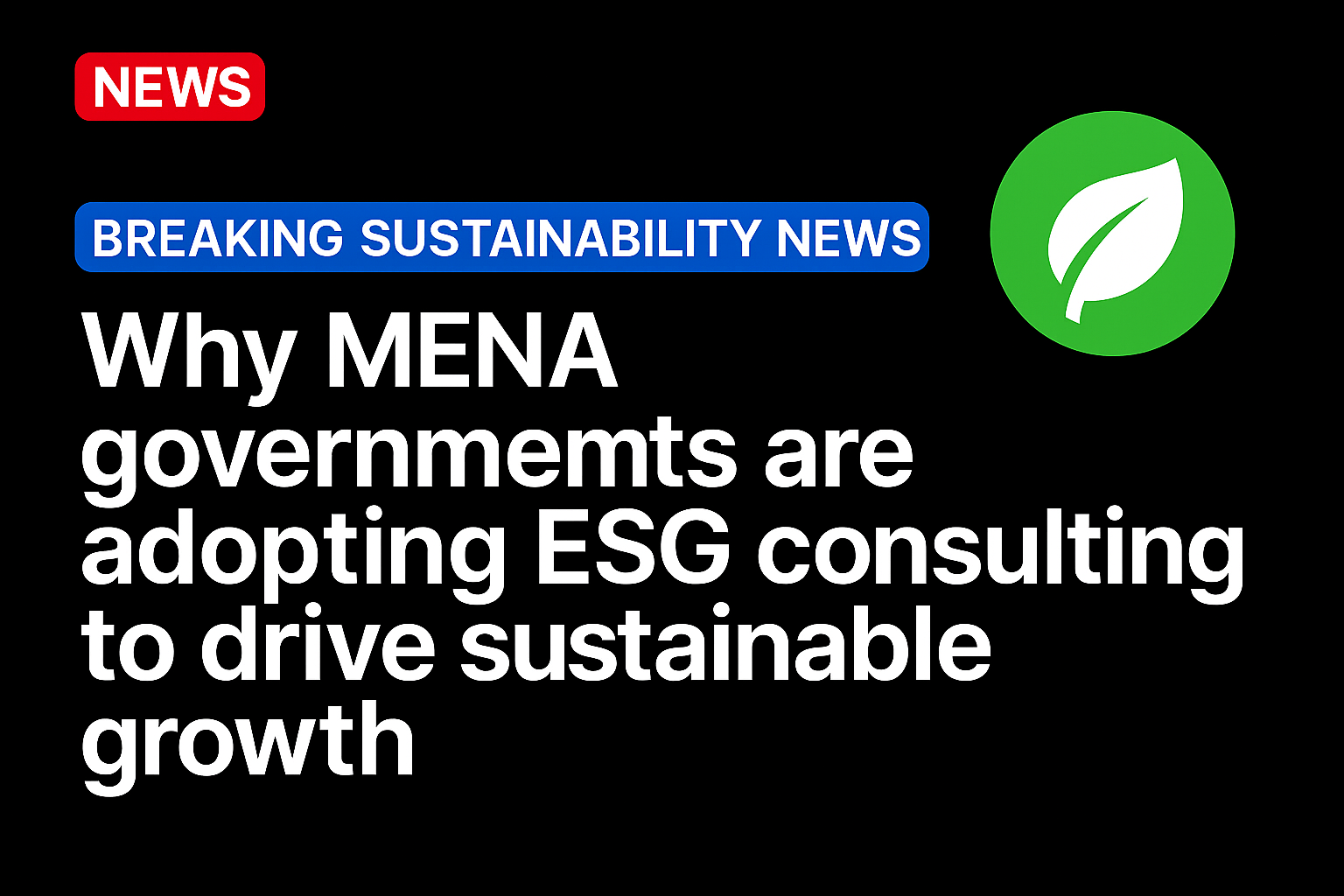With ESG becoming a key focus for governments and local authorities, officials are increasingly relying on specialized ESG consulting firms to guide their sustainability endeavors, write experts at AIIEM.
Sustainability has emerged as a defining priority in the Middle East and North Africa (MENA). With ambitious national visions and growing awareness of global environmental challenges, MENA governments are aligning their economic agendas with Environmental, Social, and Governance (ESG) principles. This transition is not only about improving reputation; it is about securing investments, ensuring long-term competitiveness, and addressing climate-related risks.
As governments accelerate their ESG agendas, consulting firms have become a vital partner in helping them design frameworks, monitor progress, implement improvements, achieve compliance, and meet international benchmarks.
ESG as a Strategic Priority
Across the region, countries are embedding ESG into their core national strategies:
- Saudi Arabia: Vision 2030 emphasizes diversifying the economy through renewable energy, sustainable urban planning, and environmental protection. Major initiatives include NEOM’s green city concept and investments in solar energy.
- United Arab Emirates: Net Zero by 2050 is driving sustainable finance, energy diversification, and innovation in green technologies. Expo 2020 Dubai showcased ESG in action, serving as a model for large-scale sustainable projects.
- Egypt and Morocco: Both nations are investing in large-scale solar and wind energy projects, positioning themselves as renewable energy leaders not only in MENA but globally.
These initiatives require complex planning and execution, as well as expertise in integrating international frameworks with local priorities.
Key Barriers to Implementation
While momentum is strong, the path to ESG integration is not free of obstacles. Its implementation is not straightforward – it involves legal, cultural, and operational complexities:
- Awareness gaps: Many organizations lack a clear understanding of ESG benefits.
- Data limitations: Reliable environmental and social data are scarce in several sectors.
- Cost perception: Some stakeholders view ESG adoption as an expense rather than a long-term investment.
- Cultural resistance: Traditional business practices can conflict with ESG reforms.
Unlocking Opportunities through ESG
The benefits of ESG adoption extend far beyond compliance:
- Enhancing competitiveness: Firms that adopt ESG standards are better positioned in the value chain.
- Improving reputation: Companies and governments gain credibility in global forums and among consumers.
- Supporting innovation: ESG frameworks encourage innovation in energy, waste management, and sustainable design.
- Attracting foreign investment: Global investors increasingly prioritize sustainability when choosing investments.
The role of ESG Consulting Firms
Leading ESG consulting firms add value to their clients by providing expertise, frameworks, and actionable strategies to navigate the complex landscape of ESG requirements. They help governments identify risks, uncover opportunities, and align their operations with regulatory standards, investor expectations, and stakeholder demands.
Beyond compliance, ESG consultants guide governments in setting measurable targets, reporting transparently, and demonstrating tangible impact, transforming sustainability from a regulatory obligation into a strategic advantage. Other value brough by consultancies include:
- Aligning policies with global reporting standards such as GRI, SASB, and TCFD.
- Implementing monitoring systems for transparency and accountability.
- Facilitating stakeholder engagement to ensure buy-in from industries, investors, and communities.
Conclusion
As the MENA region advances toward greater ESG maturity, consulting firms are playing a pivotal role in shaping sustainable economies within the government landscape. Institutions that leverage expert ESG advisory are better positioned to meet global standards, set the right example, and drive long-term growth.
AIIEM is the Arab Institute for Industrial Engineering and Management, a provider of accredited training and market research services with offices in Amman and London.
Source: https://www.consultancy-me.com/




